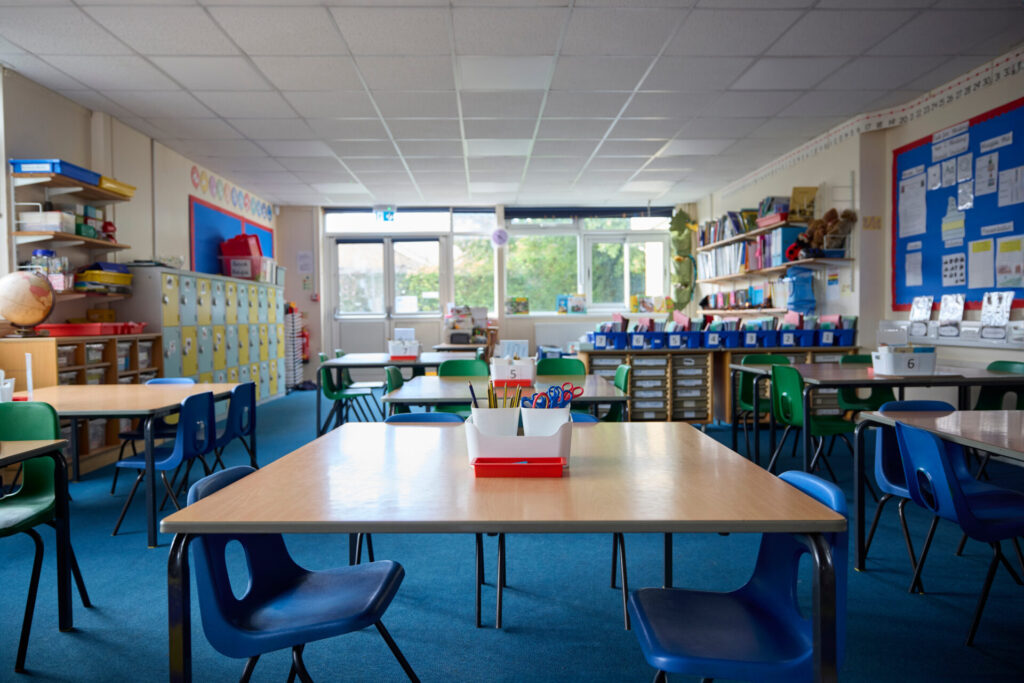Energy Solutions for the Education Sector
We deliver energy solutions for the education sector that improve efficiency, reduce costs, and support sustainability - helping schools, colleges, and universities access renewable energy and reach net zero goals.
Get Your Free Education Net Zero Brochure
Understanding the needs and requirements of the education sector.
At BP Consulting, our team aim to help the education sector reduce their energy consumption and carbon footprint, while improving operational efficiency and reducing costs. The official statistics indicate that an estimated £173 million worth of energy costs could be saved by the education sector per year. Discover how your institution could cut energy costs – book a free consultation today!
How BP Consulting Helps The Education Sector
- Reach Net Zero
- Compliance With Regulations
- Solutions Within Your Budget
We understand the critical role the education sector plays in shaping the future. We offer sustainable energy solutions across the UK—helping schools, colleges, and universities transition to cleaner, more efficient energy systems while supporting their journey toward meeting net zero targets.
Our consultancy services are tailored to the unique needs of the education sector, and we work closely with our clients to understand their energy goals and objectives. We provide a comprehensive range of sustainable energy solutions for the education sector that includes:
Energy Management
BP Consulting helps educational institutions monitor and manage energy use, reducing costs and supporting their path to net zero.
Energy Audits
Energy audits can identify opportunities to save energy and optimise operations while supporting long-term sustainability targets.
Strategy
Crafting a strong energy strategy for the education sector focuses on smart planning to lower energy use, reduce costs, and support sustainability goals.
Net-Zero Pathways
Lower emissions, enhance efficiency, and align with UK targets by adopting carbon net-zero pathways such as renewables and smart monitoring tools.
Renewable Energy
Renewables such as solar panels, LEDs and EV charging points not only reduce carbon emissions, but also reduce operational costs and boost sustainability.
Procurement
Efficient energy procurement encompasses strategic sourcing and responsible decision-making to secure cost-effective and sustainable energy solutions.
Who We Help Across Education
At BP Consulting, we work with education providers of all sizes, from single-site settings to multi-site estates. Alongside schools, nurseries, universities, and trusts, we also support private and independent schools, colleges, specialist education providers, and residential education settings. Our approach is tailored to each organisation’s structure, estate, and priorities, ensuring energy management is practical, cost-effective, compliant, and sustainable.
Schools
We support primary and secondary schools with day-to-day energy management, from improving visibility of usage and costs to keeping contracts competitive and appropriate. We reduce admin pressure on school teams by providing ongoing oversight, clearer reporting, and practical support that helps manage budgets and avoid common billing issues.
Nurseries
Nurseries often have long operating hours and high heating demand, which can push costs up quickly. We help nurseries understand their consumption, ensure tariffs and contract terms fit how the site runs, and provide support with billing queries and supplier communication, helping staff focus on looking after the children in their care.
Universities
Universities typically manage large, mixed-use estates with complex energy requirements. We help with portfolio-level insight, procurement support across multiple sites, and risk management, providing reporting that supports operational teams and senior decision-makers while keeping strategies aligned with long-term objectives.
Trusts
For Multi-Academy Trusts, control and consistency across sites is key. We help trusts standardise procurement across schools, and improve visibility of costs and performance across the estate. We also provide clear reporting that supports governors and makes it easier to meet wider stakeholder and audit requirements where needed.
How The Education Sector Can Reach Net-Zero
As the UK moves toward its 2050 net-zero goal, schools, colleges, and universities are expected to align with evolving government regulations to cut carbon emissions.
Reducing emissions goes beyond meeting regulations, it’s a smart investment, helping cut energy costs, improve operational efficiency, and mitigate effects from rising energy prices.
At BP Consulting, we provide a clear, actionable roadmap to help the education sector reduce energy use, cut carbon, and operate more efficiently. Our tailored solutions include:
- Solar PV: Generate renewable energy and cut electricity costs.
- Combined Heat and Power: Improve efficiency by reusing heat which would otherwise be wasted.
- LED Lighting: Reduce energy use with high-efficiency lighting that can connect to smart technology systems.
- Energy Monitoring: Track and optimise usage in real time and make smart decisions to save.
- REGO-Backed Suppliers: Source energy from certified renewable energy suppliers.
How Can We Help The Education Sector?
At BP Consulting, we provide high-quality energy consultancy services tailored to your needs. If you’re in the education sector and want to cut energy use, boost efficiency, and reduce costs, get in touch today.
Our expert team will assess your current energy usage, identify savings opportunities, and help you develop a cost-effective strategy. Thanks to our strong ties with top UK energy suppliers, we secure competitive rates for our clients. Start saving time and money – fill in the form below and one of our team will be in touch,
Reduce Consumption
We can help to construct a tailored energy strategy, and with additional energy management and efficiency measures, you could massively reduce your energy consumption.
Improve Efficiency
Through energy efficiency measures, such as HVAC assessments and IoT solutions, we work with your organisation to lower consumption for sustainability and cost savings.
Save Costs
We empower the education sector through competitive energy contracts, reduced consumption, and renewable solutions with the aim of saving you costs on your energy.
We’re Here To Help: Energy FAQs For The Education Sector
Schools can install solar panels, switch to LED lighting, use heat pumps, and invest in EV charging infrastructure to reduce reliance on fossil fuels. BP Consulting helps educational institutions assess and implement the best renewable energy solutions to lower costs and carbon emissions.
Yes, schools and colleges can access funding through schemes like the Public Sector Decarbonisation Scheme (PSDS), which provides grants for energy efficiency and low-carbon heating upgrades. BP Consulting can help identify available funding and guide institutions through the application process.
Transitioning to net-zero involves improving energy efficiency, adopting renewable energy, and implementing energy monitoring solutions. BP Consulting supports educational institutions with tailored net-zero strategies, from reducing waste to integrating solar panels and smart heating systems, we can help your institution reach its energy goals.
Energy monitoring provides real-time data on consumption, helping schools identify inefficiencies and optimise usage. This leads to cost savings, reduced waste, and better decision-making for long-term energy management.
Schools, colleges, and universities may need an Energy Performance Certificate (EPC) when constructing, selling, or leasing buildings. Public sector institutions over a certain size also require a Display Energy Certificate (DEC) to show actual energy usage, contact our team if you're unsure whether your institution qualifies.
Yes, large schools, colleges and universities must comply with regulations like ESOS and SECR if they meet certain criteria, and public institutions may need Display Energy Certificates (DECs). BP Consulting can help you with regulation processes and ensure your institution remains compliant while improving efficiency.
Older buildings can benefit from energy audits, insulation upgrades, LED lighting, and smart heating controls. BP Consulting helps schools and other educational institutions pinpoint inefficiencies and implement cost-effective solutions to help improve efficiency and sustainability.
Implementing automated controls, adjusting heating schedules, and shutting down non-essential equipment can significantly reduce energy waste during school holidays. BP Consulting offers energy management strategies to optimise consumption year-round.
Educational institutions can future-proof their energy strategy by investing in renewables, improving energy efficiency, and securing competitive energy contracts. BP Consulting provides expert procurement and long-term energy planning to help protect against price volatility.
BP Consulting helps multi-campus institutions centralise energy data, develop unified strategies, and implement efficiency projects across all sites. Our tailored solutions help to provide consistency, cost savings, and sustainability across multiple locations.




